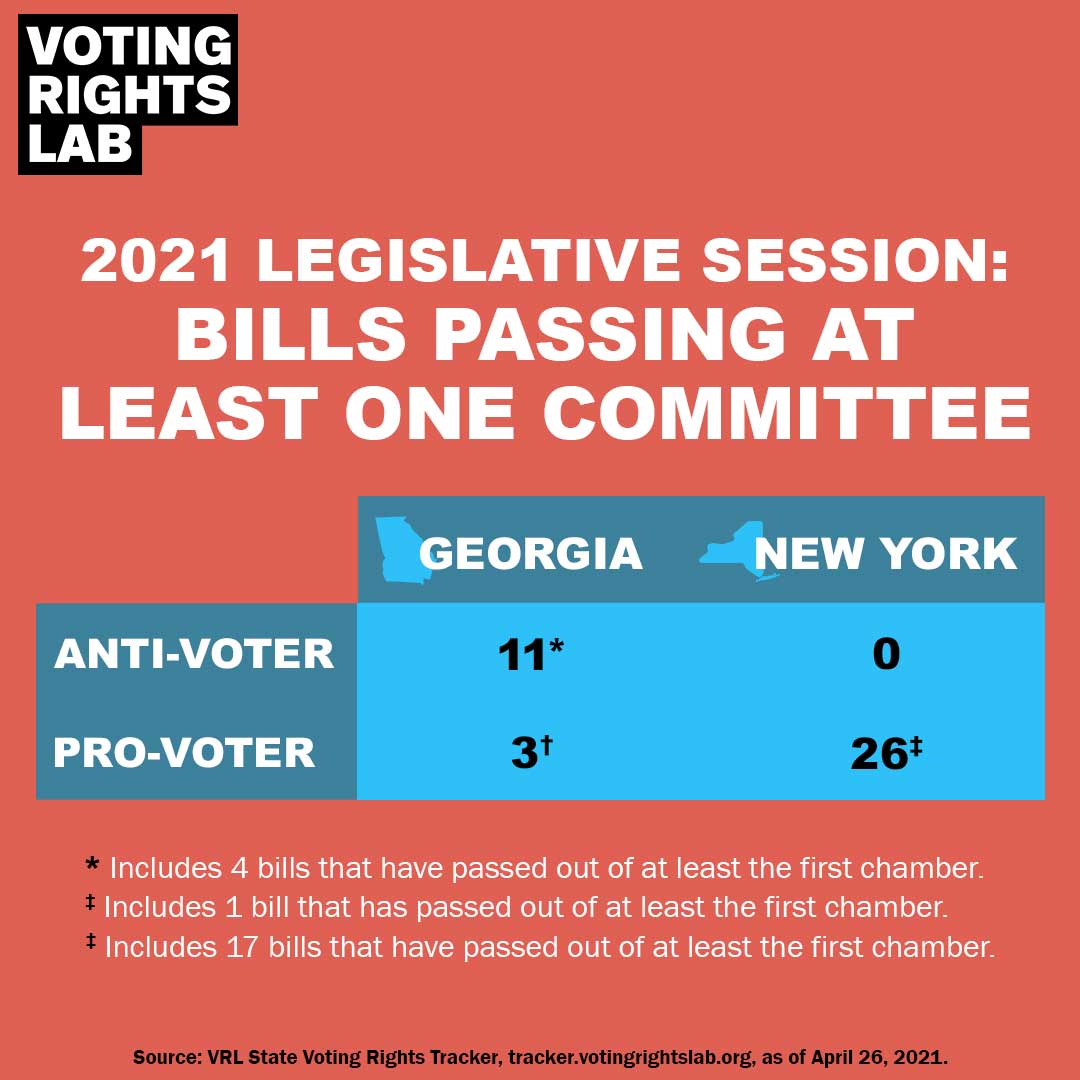In the wake of the passage of Georgia’s sweeping anti-voter legislation, some have been quick to draw comparisons between Georgia’s bill and laws on the books in blue states — particularly New York.
Comparing Georgia’s enacted legislation to New York’s current law is a misleading argument, as it ignores both the historical context of both states and the intent behind bills being pushed this session.
The wave of proposed anti-voter policies in Georgia and other states across the country is fueled by some politicians who, unhappy with the results, want to set us back, adding barriers to voting for Black, young, and new Americans and enabling partisan actors to undermine our free and fair elections.
What’s more, when you compare the legislative trajectory between states like Georgia and New York, the data tell a different story.

We dug into the State Voting Rights Tracker to look at introduced legislation in both states, and the results show a clear difference in direction. Lawmakers in Georgia introduced nearly 30 anti-voter bills this year to make voting less accessible and strip authority away from state and local election officials who work tirelessly and professionally to count and certify election results. Eleven of those bills passed at least one committee, and four passed out of at least the first chamber.
When the Georgia legislature ultimately enacted S.B. 202, a far-reaching omnibus election bill that made wholesale changes to Georgia’s election code, a number of the anti-voter policies that had been introduced in other bills earlier in the session were absorbed into the final version.
It’s been well covered just how bad S.B. 202 is for voters. Among other things, this legislation drastically limits the availability of drop boxes, effectively bans mobile voting, restricts the amount of time voters have to request an absentee ballot, shortens the time voters have to vote early in federal runoff elections, and prohibits giving food and water to people waiting in line to vote. S.B. 202 also gives partisan state officials the authority to remove and replace county election officials.
In New York on the other hand, zero anti-voter bills have advanced out of committee as of last week. Twenty-six pro-voter bills have passed at least one committee, and 17 of those bills have already passed one chamber.
New York’s pending legislation aims to significantly improve voter access by creating same day voter registration, streamlining access to absentee ballot drop boxes, and ensuring all voters have the freedom to vote absentee. The New York legislature also passed a bill to restore voting rights to individuals returning home from prison.
The pro-voter trend in New York is similar to what we are seeing in the ten other Northeastern states, where, as of April 23, a total of 85 pro-voter bills have been favorably referred out of their first committee. Only two anti-voter bills have made it that far.
These states do have work to do to ensure that their elections are fair and accessible to all voters, but it’s unquestionable that their legislation is headed in the right direction.
Reforming an election system is never easy, but lawmakers in New York are taking deliberate steps to modernize its procedures and expand voter access, whereas Georgia lawmakers are enacting laws to restrict voter access — often with laser precision — and undermine the will of the people.